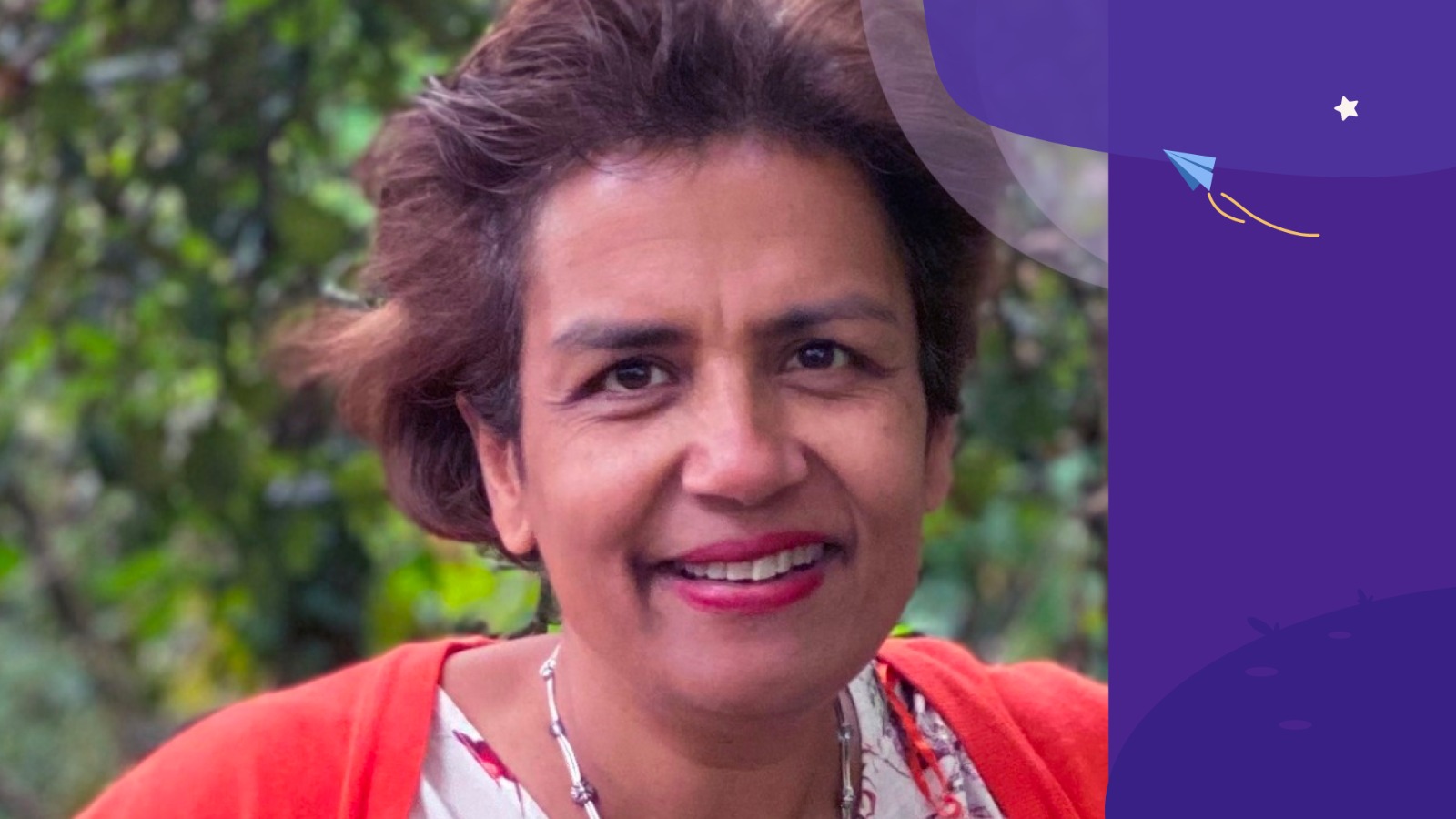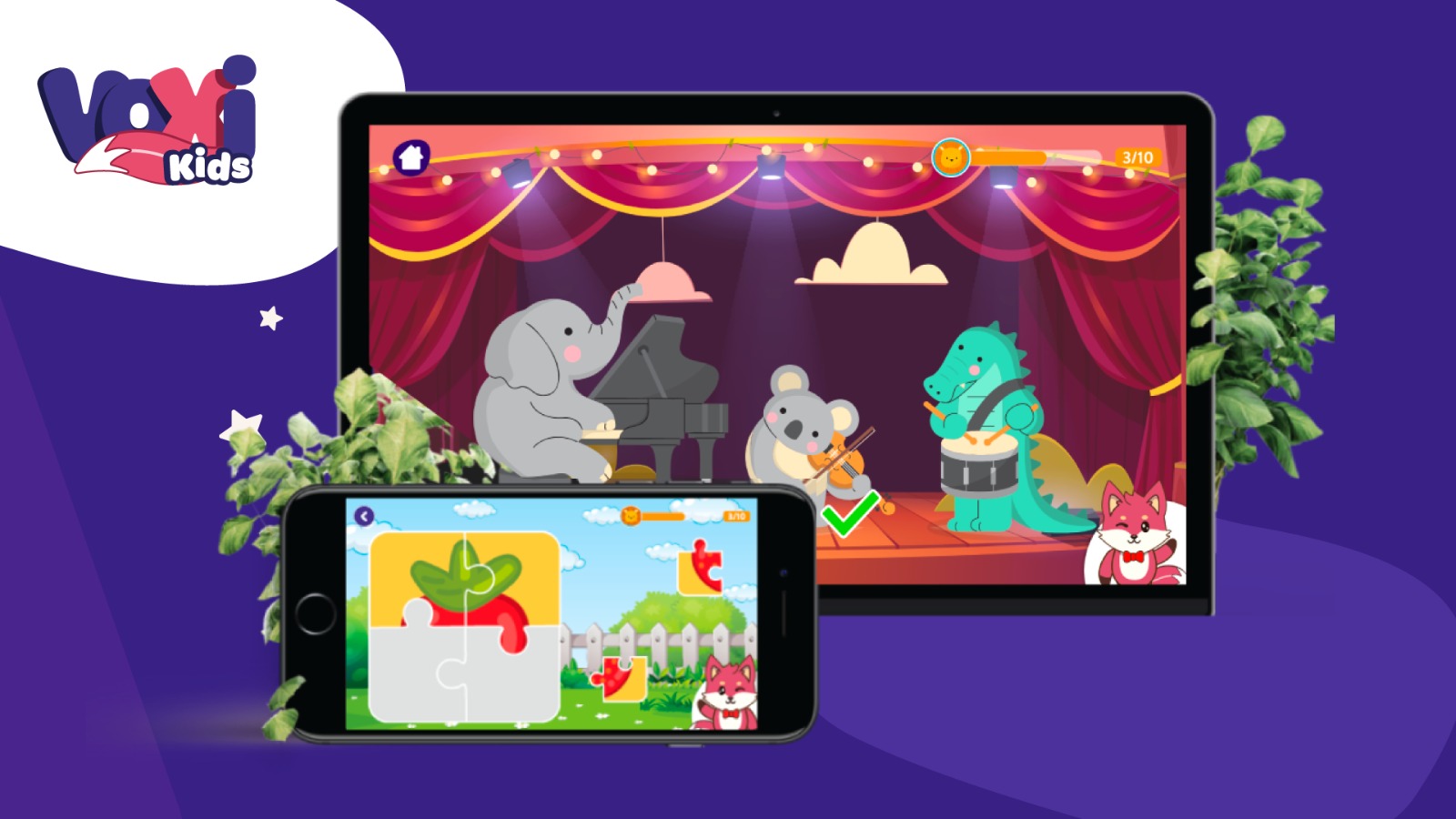Voxi: Hi Bev! Because you are part of the Voxi team, we want to give you a short interview, so that our readers can get to know you better. We want to let everyone know that we are working with the most dedicated and passionate professionals!
First things first – who is is Bev Jessup?
Bev: Hi my name is Beverley Jessup and I’m a speech and language therapist working in the UK. For over 30 years, I have worked with children and adults across different settings (schools, nurseries clinics, specialist schools, residential units and hospitals). Over the years, I have trained teachers, therapists, assistants and parents/carers on effective communication skills and various therapy programs. I specialise with children who have got a language disorder and have difficulty with accessing the curriculum in classrooms as well as adults and children who have no means of communication and have to use electronic means of communication like an iPad or some other electronic device. I’m also trained in Makaton signs and symbols as well as alternative means of communication. Recently, I have had an influx of adults who have had strokes/head injuries with acquired aphasia and dyspraxia.
V: What made you want to contribute to the development of a speech therapy platform? Why VoxiClinic?
B: In 2010, I decided that I wanted to do something different and entered a business competition to invent my own software that therapists could use to deliver online therapy. At the time, I became one of the finalists in the south of England but, unfortunately, I didn’t win the competition. Even so, this has always been a passion that I had in my head and in my heart. When I got involved with VoxiClinic, I wanted to be able to help them develop the technology and the platform on which therapists can:
- assess and meet potential clients
- give them the best therapy online with motivating games and resources
- keep their records, digitally, all in one place
As I have been doing therapy online since 2015, well before COVID reared its ugly head, I knew I had the experience and knowledge of the technology and the therapy to make both work seamlessly.
V: What is the most important advantage of digitizing speech therapy?
B: Technology has progressed significantly since 2015 and it is reassuring to talk to the young software developers at VoxiClinic to ensure that they make an adaptive and evolving platform.
I think it’s really important that tele-therapy is available to clients because it allows speech therapists to reach a wider client group. I have been able to see clients all over the world such as in Saudi Arabia, Nigeria, Fiji, China, Italy and France and, obviously, all over the UK. Being on an island has meant it would have been impossible for me to see clients on the mainland in the UK as it would have been prohibitively expensive in both time and money. Now, I can just walk to the bottom of my garden and open up my computer, see someone in a different country and serve their communication needs as if they were right in front of me.
V: What are your top 3 favorite features of VoxiClinic?
B: What I really like about VoxiClinic is the ability it offers to change the activity according to what you want as a therapist. Additionally, it has pre-programmed games and activities that can be used to help along the way. The designs of the pictures are brilliant and they are beautifully arranged on-screen. The wide range of vocabulary items available is also excellent. They have also incorporated Bing images allowing therapists to pivot from drawings to photographs so as to make the activity more age appropriate for adults and teenagers.
V: What is the biggest challenge you encountered in transcribing classical speech therapy exercises into a digital format?
B: I have worked with other speech therapy platforms and the biggest problem I have encountered, when working in a digital format, is to be able to have more interactive resources with the child or adult so that they feel motivated. I also don’t like the assessment and report features in other platforms. Since being involved in VoxiClinic, I know that they will have assessments for all ages and a report format that will make the process easier for therapists.
V: What are the advantages of tele-therapy and who can benefit from it?
B: The advantages of teletherapy are as follows:
- It is available to anyone with a laptop and WiFi.
- It means that the clients don’t have to travel very far.
- Clients are usually more comfortable speaking in their own environment.
- It is better suited to older clients as they don’t have to drive to a hospital and wait in a very sterile environment for their appointment.
- Being able to see a client’s face makes it easier to build a meaningful connection.
- Carers are usually within earshot of the session and can watch the techniques used from the comfort of their own home.
- Clients of younger generations are so tech savvy that they quickly engage with the activities without realising that they’re actually doing work.
- Since all the sessions are recorded, both children and adults can watch a session with their carers and practice the techniques in their own time.
V: What novelty does VoxiClinic add to this industry?
B: VoxiClinic is the first Europe-based platform serving speech therapists all over the world. It has a built-in directory that allows therapists to advertise their services to potential clients all over the world which is something I really think will benefit those therapists who are just starting out and don’t have enough clients or perhaps even an internet presence.
V: In your perspective, how does VoxiClinic impact children’s wellbeing?
B: I think the way that VoxiClinic is set up will allow more clients to be seen all over the world. It will have a huge impact on children and adults who have been waiting a long time for therapy within their own health system or in their school. There is also the added advantage that, if you are a therapist with a special skill or a particular language, you could deliver your speech therapy via VoxiClinic and be known for that expertise through the in-built directory.
For example, if you are an Italian speaker and speech therapist but you live in Greece and you want to deliver bilingual therapy to an Italian child in either Italy or in the UK, you are able to do that very easily using VoxiClinic.
V: How long does an online speech therapy session last? Is it the same as a traditional, in-office therapy session?
B: Most online therapy sessions last for half an hour but, in my experience, clients often want 45 minutes or even an hour. However, when you have very young children, you can also do just 15 minutes twice a week. This sort of frequency you would never do in offline therapy.There is also an opportunity to do training for the parents or carers. Another aspect that VoxiClinic has that other platforms don’t is the ability you can give homework to your clients through the mobile app which makes activities more fun, interactive and easier for parents to get involved in ensuring that homework is done.
For anyone thinking of starting their own online therapy clinic and need a reliable HIPPA compliant platform through which to deliver their therapy with excellent resources, a reliable server, whiteboard, a way of sharing your screen without glitches and the ability to keep all your notes and reports in a safe place, then VoxiClinic is the platform for you.
Why not arrange a trial and have one of the representatives take you through the process of registering and trying the activities that are currently online?







